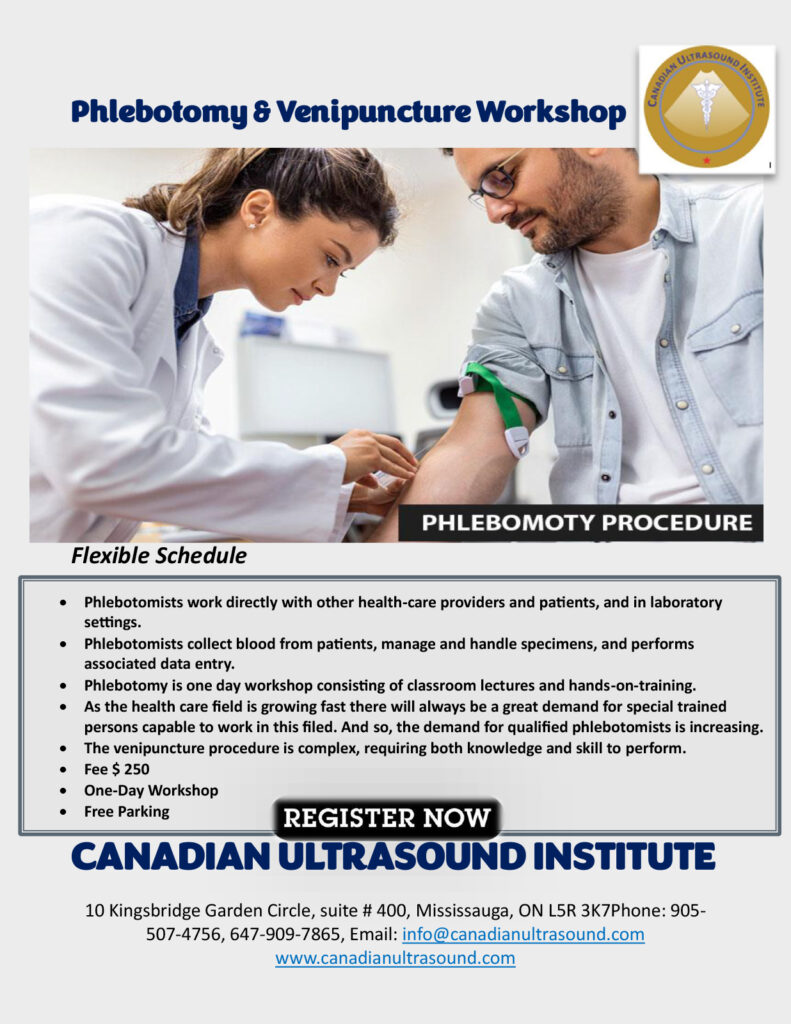
A phlebotomy and venipuncture workshop is a hands-on training program designed to teach participants the essential skills and techniques required for drawing blood samples and performing venipuncture procedures. These workshops are typically geared towards healthcare professionals, such as nurses, medical assistants, phlebotomists, and laboratory technicians, as well as individuals seeking to enter the field of phlebotomy.
Here’s what you can expect from a phlebotomy and venipuncture workshop:
Anatomy and Physiology: Participants will receive instruction on the anatomy and physiology of the circulatory system, focusing on the structure and function of veins and arteries relevant to phlebotomy procedures. Understanding the underlying anatomy is crucial for performing venipuncture safely and effectively.
Safety and Infection Control: Emphasis will be placed on maintaining a sterile environment, following standard precautions, and preventing the transmission of infectious diseases. Participants will learn proper hand hygiene techniques, personal protective equipment (PPE) usage, and procedures for handling bloodborne pathogens.
Equipment Familiarization: Participants will become familiar with the various tools and equipment used in phlebotomy, including different types of needles, syringes, vacutainer tubes, and blood collection devices. Proper handling and disposal of equipment will also be covered.
Venipuncture Techniques: Hands-on training will be provided on venipuncture techniques, including proper patient identification, site selection, vein palpation, needle insertion, blood collection, and post-procedure care. Participants will have the opportunity to practice these techniques on simulation arms or other training models under the guidance of experienced instructors.
Special Considerations: The workshop may cover special considerations for specific patient populations, such as pediatric, geriatric, or difficult-to-access veins. Techniques for minimizing patient discomfort and ensuring procedural success in challenging situations will be addressed.
Quality Assurance and Documentation: Participants will learn about quality assurance measures, including proper labeling and handling of blood samples, documentation of procedures, and maintaining accurate records. Attention to detail and adherence to established protocols are essential for ensuring sample integrity and patient safety.
Legal and Ethical Issues: The workshop may also cover legal and ethical considerations in phlebotomy practice, such as patient confidentiality, informed consent, and scope of practice. Participants will learn about their professional responsibilities and obligations in the context of blood collection procedures.
Overall, a phlebotomy and venipuncture workshop provides a comprehensive training experience that equips participants with the knowledge, skills, and confidence needed to perform blood collection procedures safely, accurately, and efficiently in a healthcare setting.